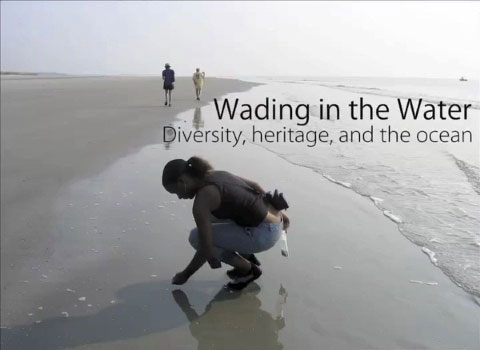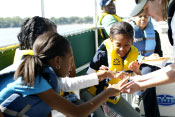|
|||||
Dr. Thomas has worked extensively on COSEE SouthEast diversity initiatives. "Within her own role at NC State she works with diversity projects," says Lundie Spence, "so working with us is an extension of what she does in her own department."
"One example is our Coastal Legacy program," says Carrie, "in which we highlighted the technology and hydrology and agriculture brought over by enslaved Africans." The program brings educators and students out into the field to show them direct effects of this history and, according to survey results, excels at engaging the participants.
COSEE SouthEast has completed several surveys and assessments of their work on diversity issues. Carrie participated in the 2009 Survey on Diversity in Ocean Sciences Workforce In Federal and State Agencies and in Institutions of Higher Education In North Carolina, South Carolina and Georgia and was one of the authors of the final report
|
Thanks to a grant from NSF's Opportunities for Enhancing Diversity in the Geosciences (OEDG) a forum will be held in Fall 2010 at which scientists and university administrators will brainstorm on successful programs that address diversity issues. "This is a brainchild of Carrie Thomas," says Lundie, "who realized that there are lots of programs going on and very little sharing of what works. It's a complex problem and it's not one that's going to be solved with one program." "We're finding that there are a lot of smaller initiatives that people aren't necessarily aware of," says Carrie. "Some of them are great models and, with a little more networking, could have much greater impact and involvement."



